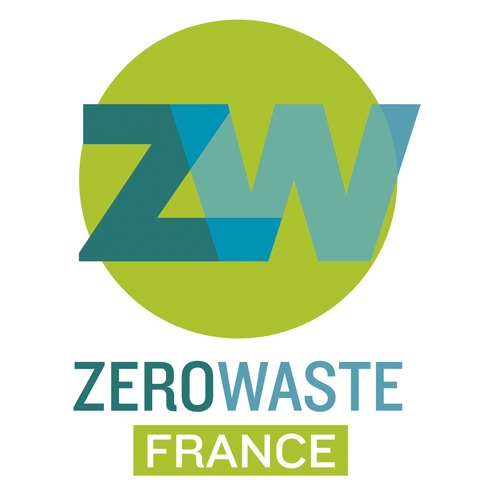Circular economy roadmap: the five priorities defended by Zero Waste France

How to waste fewer resources with zero waste and the circular economy? Zero Waste France has identified 5 priorities to be included in the Ministry of the Environment’s road map.
08/01/18 press release
The need to reduce wastage of resources with zero waste and the circular economy has become a key objective in France. The question of how to do it remains to be solved. This was the wish expressed by the Ministry of the Environment which launched a consultation on October 24 aimed at developing a “circular economy roadmap”. The goal is to identify regulatory, fiscal or organizational levers that will accelerate the transition to a more resource-efficient economy. Zero Waste France took an active part in these consultations, making a number of proposals. While awaiting the first version of the text which should be made public at the end of January, we focus on the main priorities defended by the association.
FIGHT AGAINST SINGLE-USE PLASTIC
The government has an ambitious goal as part of the roadmap: to recycle 100% of plastics by 2025. But without questioning the pervasiveness of plastic in what we consume every day, and greatly reducing its use, this goal may well be unachievable. Zero Waste France has proposed to set targets to reduce our consumption of plastic and to ban certain plastic objects, especially those used for eating/drinking on the go, such as polystyrene boxes, disposable plastic cutlery and straws that are frequently found in the countryside. Another proposal is to tax plastic products that generate a lot of waste and for which there are reusable alternatives (household wipes, disposable razors, advertising products, etc.).
MAKE ECO-DESIGN COMPULSORY
To build a truly circular economy, the product manufacturing stage is key. Choices made by manufacturers in terms of materials and manufacturing processes ultimately determine whether our smartphone will be repairable, our packaging recyclable or whether our printer will have a longer life. To make eco-design compulsory for companies, Zero Waste France has proposed to make more widespread and incentivize the eco-modulation initiative on certain consumer products subject to the principle of “Extended Producer Responsibility” (EPR). So a penalty should be imposed on unrecyclable packaging such as polystyrene to discourage its use in favour of easily recyclable materials, which would be entitled to a bonus. The same goes for telephones or household appliances, which are sometimes designed in such a way as to prevent them from being dismantled and repaired.
PROMOTE REFURBISHMENT AND REPAIR
Too often considered as similar to recycling, refurbishment, which consists of reusing something for the same purpose and therefore without destroying it, has little support in France, although it has the potential to create many jobs and is more useful from the environmental point of view than recycling. Zero Waste France has proposed to set national refurbishment targets separate from those of recycling. These specific objectives could justify new means of financing for the sector (contributions paid by companies on the grounds of EPR, reduced VAT, etc.). The association has passed on the proposals of the “Réseau Consigne” (Deposit network) which it belongs to, in order to develop the idea of a deposit for the refurbishment of packaging, especially for drinks.
SPEED UP THE IMPLEMENTATION OF ORGANIC WASTE SORTING
The sorting of food and garden waste (organic waste) for composting or methanation must be in widespread use by 2025 in France [1]. To accelerate implementation of this objective, Zero Waste France has proposed that the government should carry out a communication and awareness campaign to publicize the benefits of this new sorting approach for the French. The use of composted organic waste in agriculture will also involve improving the quality standards of compost, a proposal that the association has been making repeatedly for several years! Zero Waste France has also proposed that the annual report on the public waste management service (produced by each local authority) should include information on the number of inhabitants covered by a separate sorting solution for food waste.
IMPLEMENT INCENTIVE TAXATION
Tax and economic tools are obviously essential to encourage public and private stakeholders to opt for the circular economy. Zero Waste France has proposed increasing the tax on waste incineration and landfilling in order to make recycling and waste reduction at source more economically attractive. Similarly, the association has made several proposals to encourage the introduction of incentive charging for waste collection and treatment (the amount of tax is determined by the amount of waste produced). The association has also proposed to tax at source some highly wasteful and non-recyclable products (e.g. household disposable wipes, promotional “goodies”, etc.) to encourage their reusable alternatives.
These measures could be accompanied by a reduction in charges or VAT for virtuous activities and products (repair, organic waste sorting, incorporation of recycled materials, items complying with the European Ecolabel, etc.).
It remains to be seen whether these different proposals will be included in the roadmap set by the government. After a consultation phase where stakeholders were able to submit their contributions and citizens were consulted via an online collaborative platform, an initial version of the text should be presented in late January. It will be followed by a second consultation phase before the roadmap is finally adopted in early March.